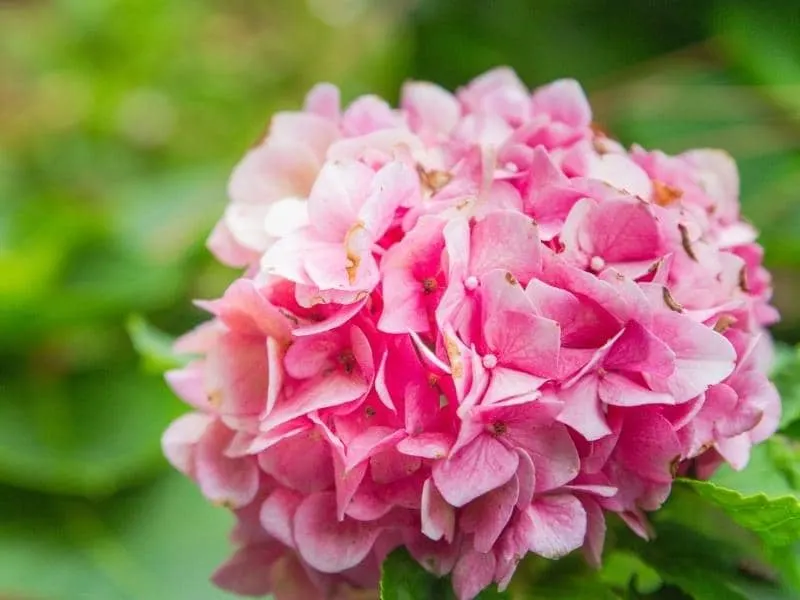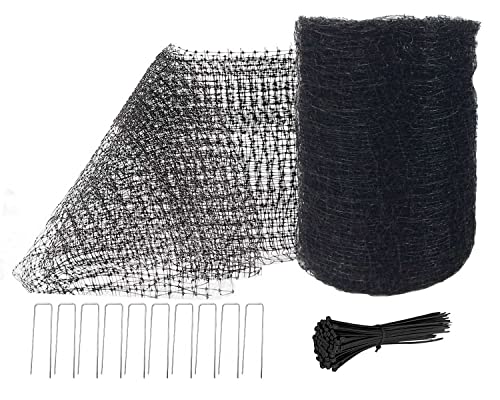Deers do not eat meat or flesh, rather they eat plants, shrubs, and herbs. Though some plants are deer resistant, deer still would not leave those plants if they come before them when the deer are hungry. Starving deer can do harm to any plant.
Following the below tips and information regarding hydrangeas and if the deers can eat the plants or not would help you to look after your plants.
Deer eat hydrangeas
Deers eat hydrangeas. They actually love hydrangeas. Hydrangeas come in different colors and different heights. Well, they are great as landscaping flowers. Moreover, some of the species of the hydrangeas are also deer resistant, you can plant them instead to reduce the damage by deer.
Table of Contents

Deers usually eat plants, their bushes, leaves, shrubs, and herbs. Hydrangeas plants are also eaten by deer. The beautiful color of the hydrangeas can attract the attention of the deer.
As a result, they are not safe from the harm of the deers. Still, there are some deer-resistant hydrangeas found.
Hydrangea arborescens:
Deers would love to see hydrangea arborescens. They would not think twice before having these hydrangeas.
Endless summer hydrangea:
Endless summer hydrangeas can not grow more than 3 to 4 feet. The smaller height is reachable by the deers. Especially fresh plants are most harmed by the deers.
White hydrangea:
White hydrangea is not safe from deer. The white color of the flower might not draw much attention yet if they come before the deers, they would love to eat the flowers.
Pee Gee hydrangea:
Pee gee hydrangeas are usually tall. They can grow up to 20 feet. Moreover, due to their attractive appearance, they are damaged by the deers.
Limelight hydrangea:
Limelight hydrangeas are not safe from deers at all. They are easily reached by the deers which leads to damage.
Oakleaf hydrangea:
Oakleaf hydrangeas are safe from deer as they are deer resistant. The plants are dwarf in size and are easily accessible to the deer.
Climbing hydrangea:
Climbing hydrangeas are among those hydrangeas which are resistant to deer.
You can plant these with other hydrangeas to keep the deer away. Nevertheless, the plant is not safe from the harm of hungry deer.
Bobo hydrangea:
Deers love to have bushes rather than other parts of the tree. Meanwhile, the bobo hydrangea is a dwarf plant full of flowers. The hydrangea is not deer resistant at all.
Annabella hydrangea:
Annabella hydrangeas are 5 to 6 feet high. Deers love to eat smooth plants. As a result, Annabella hydrangeas are often eaten by deers or they would take the plants only.
Are deer attracted to hydrangeas?
Deers are easily attracted to hydrangeas. Hydrangeas are flowers that come in different colors. Even pink, white, red, violet, and many more colors are available.
Even the plants grow up from 2 to 20 feet. The attractive appearance of the flowers makes them appealing to the deers.
Moreover, the flowers do not have a strong smell. Deers mostly eat the bush, the tip of the plant rather than the flower.
They can also take the flowers and leaves. Even if the deer causes harm to the plant, the plant can grow back. As long as the roots are safe.
Moreover, the buds of the hydrangeas also help to grow them back. But deer love to eat buds. Deers can as a result cause severe harm to plants as well.
Do deer like hydrangea?
Yes, deers like hydrangeas. Well, deers like all types of plants as long as the plants have low fragrance.
Deers are sensitive to smell and they do not go near the plants which spread a strong odor. Moreover, they ignore the plants which seem less appealing.
Hydrangea plants have a variety of flowers. Some species are loved by the deer and others might work as the deer-resistant flower.
Well, very few hydrangeas are resistant to deers. Though deers hardly harm those hydrangeas, when they are hungry they would not hesitate to harm them.
Deers can not resist any plant especially when they are hungry. Hydrangeas can revive themselves after being damaged by the deers. If they are severely damaged, there is nothing to do. Deers would not certainly leave the hydrangea plants alone.
Do deer eat these hydrangeas parts?
Deers eat almost every part of hydrangeas. Well, they mainly prefer tender parts which taste well.
And the parts which can be reached by the deer are not safe at all by the the deer. Even if they do not eat the hydrangeas, they would trample over the plants.
Hydrangeas bushes:
Bushes are the favorite of all the parts of the plant to the deers. Deers would definitely have the hydrangeas bushes.
You might find the bushes being severely damaged by the deer. They would chew the bushes and pull off the leaves and flowers from them.
Hydrangeas flowers:
Deers also eat hydrangeas flowers. They often prefer to eat bushes but would not mind having the leaves.
They are more likely to chew the flowers and throw them out if the flowers do not taste well. They would also take the leaves with the flowers.
Hydrangeas trees:
Hydrangeas trees are also affected by deer. Well, they eat the trees and bite them as much as they can. But hydrangeas have the power to revive themselves.
A slight injury would not affect the tree. Even the flowers and leaves can grow back from the slight harm.
Meanwhile, severe damage would not let the plant grow at all. Moreover, fresh and new plants are mostly affected by the deers. The newly planted plants are fragile and need more care.
As a result, they appear more delicious to the deers and are harmed by the deers.
Which hydrangea is deer resistant?
Oakleaf hydrangea and climbing hydrangea are deer-resistant hydrangeas. Deer resistance means the plant is not affected by the deer.
Deers would ignore them and look away if the plants appear before them. Well, hydrangeas are not deer resistant at all.
Still, some of the hydrangeas are considered deer resistant though can also get affected by the deer when the deers are hungry.
The oakleaf hydrangea does not look appealing to the deer. Meanwhile, both the oakleaf and climbing hydrangea can grow up to a huge height.
This makes it impossible for the deers to reach out to the plant. As a result, they can not eat the flowers and even the leaves of the plant.
How do you keep deer from eating hydrangeas?
Deer can damage most plants especially when they are hungry. They will not even bother or doubt to eat the plants which are not liked by them when they are starving. To stop the deer from eating hydrangeas from your garden you can follow the rest.
Repellents:
Deers can be kept away by applying repellents to the garden. Well, repellents like garlic spray, pepper spray, and vinegar can help temporarily to keep the deers away.
You can spray the repellents over the plants as they will not cause harm to the plants. You can also drop garlic cloves on the ground as deers do not like garlic due to the smell.

Soaps:
Deers can not handle high fragrance. From pungent smell to sweet smell is sensitive for the deers. Soaps with fragrance can repel deers. You can hang soap with the plant to repel the deer from eating the hydrangeas.
Fence:
The fence can provide safety for the hydrangeas. Well, hydrangeas can grow from 2 feet up to 15 feet. You can use a fence to cover the area. Or keep the trees away from the eyes of the deer by keeping walls. It can help to some extent.

Net:
Covering the plant with a net can also give protection. But it would not look appealing. Still, it can be a temporary solution to keep the deer away.
Electric wire:
Placing electric wire in the garden can also help to keep the deers away from the plant. Well, a little electric shock would not do harm to them. Rather it would make them cautious and they might not visit again.
Final Thoughts
Overall, deers can undoubtedly eat hydrangeas. Even though the plants are longer in height, as long as they can reach the plant they would eat the bushes, flowers, and even leaves. Yet, some hydrangeas are known as deer-resistant. But no deer-resistant hydrangea plant is safe from a hungry deer.
